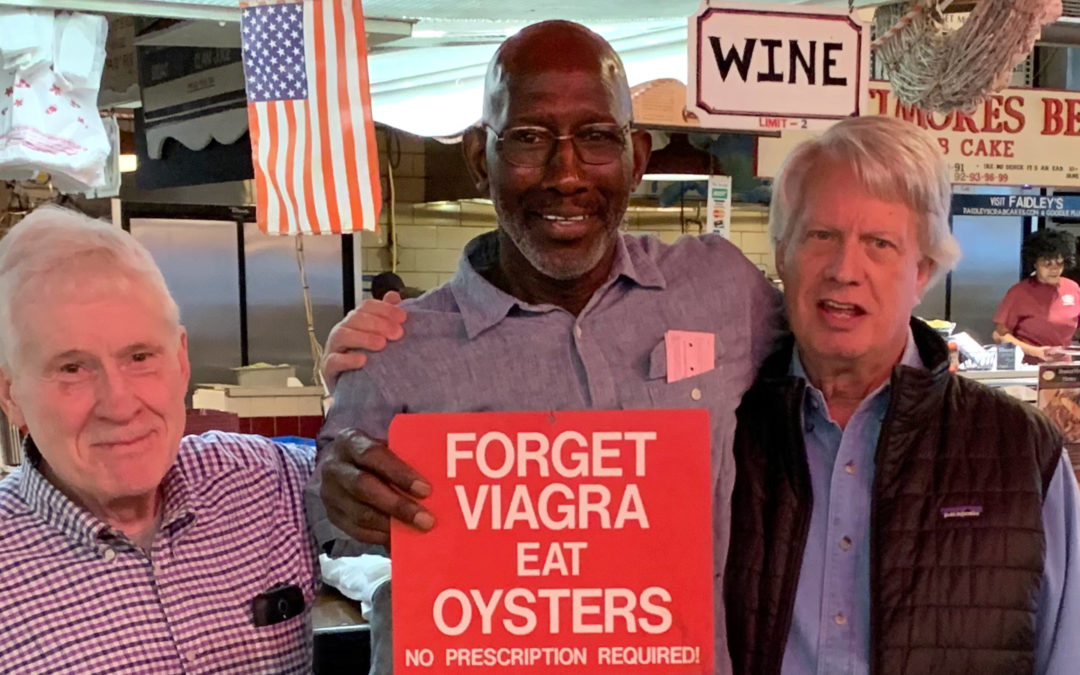There is only one lawyer I know who will go to heaven — Mike Millemann. He recently wrote a law review article about a theater class aimed at teaching law students how to be better lawyers, which we taught together several years ago at The Carey School of Law at University of Maryland. The class was both bizarre and beautiful.
The students were tentative at first but, by the end, definitely loved it. In almost every case, the students were amazed by a third dimension this class offered to their law school education: compassion as it is embodied by our professional responsibility.
One of the students commented:
“Ten years from now, I am certain that when I am asked to share my most eye-opening class in law school, I will mention this class. It has been a learning experience that no other law school class that I have taken can come close to in comparison.”
The model for the class came from the stories of African American males incarcerated and serving life sentences in Maryland, who were later exonerated because they were determined to be completely innocent.
At the first class, one of these innocent men who had spent most of his life incarcerated under a life sentence, was introduced to the class. He quietly answered the student’s questions, remarkably without anger.
Each of these men had been through hell and had escaped it unexpectedly, and they shared that experience.
Throughout the writing and performing process, the students learned in a way that is completely different than the traditional law school education.
After going through trial transcripts, appellate briefs, the underlying facts and the law of each case, the students wrote a play. They collaborated, they wrote the roles of corrupt prosecutors under public pressure and eager for a conviction and incompetent defense lawyers who took $300 from the family of the defendant and provided only half-day trials in capital cases without prior research or exonerating witnesses. But also, the students wrote the story of the diminished hope and desperation of family members who were in shock by the verdict, and who over time grew despondent about American justice.
And then the students lived the roles which they created as they performed their play before a live audience.
In one case, Michael Austin, who had been recently released and had taught himself music during his incarceration, stayed with us throughout the class and was asked to join a class member at the side of the stage to add musical accompaniment.
In the last scene, the governor of Maryland announced publicly that Michael Austin was to be released. On stage, the student playing Michael Austin was asked: “Are you angry about what has happened to you?”
To the extreme surprise of the audience, Austin, barely noticed previously, took center stage and announced: “I am Michael Austin and I am thankful for the lawyers who accomplished my release and for the efforts of this class and this law school for telling my story.” From the surprise, came tears in the audience.
But more importantly, the class had learned what law school doesn’t teach: that a lawyer, when he or she takes the oath required to be licensed, has a greater responsibility to the society than almost everyone else. The oath is not a license to make money. It is a responsibility to “protect the Constitution” and the democracy in which we live.
The brilliant Elliot Rauh, a founding member of Single Carrot Theatre and I worked together on this class, but the suggestion and support for the project came from Professor Michael Millemann. He is going to heaven for his lifetime commitment to public justice and the unfairly incarcerated, and for this class.
Professor Michael Millemann’s article has already been accepted by one law review for publication and others are expected to express interest. When it is published, I will post where it can be read.
Featured in the photo: Michael Millemann, Michael Austin, Robert Bowie, Jr.

